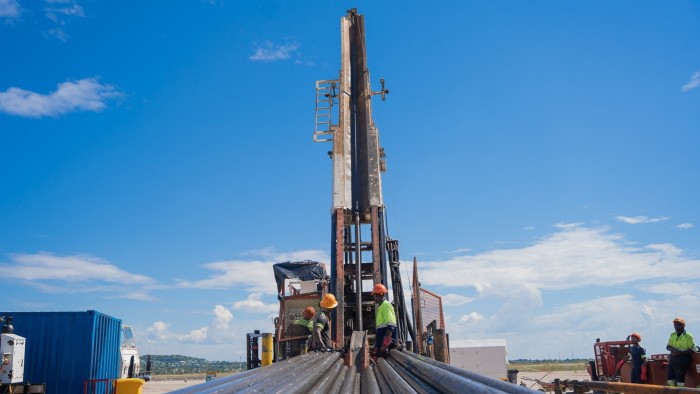Unlock the Editor’s Digest for free
Roula Khalaf, Editor of the FT, selects her favourite stories in this weekly newsletter.
A mining and artificial intelligence start-up backed by Bill Gates and Jeff Bezos has raised $537mn in its latest funding round, as it seeks to become a key player in the race for the critical minerals needed for the energy transition.
Berkeley-based KoBold Metals said its series C funding round valued the company at $2.96bn, and was co-led by existing investor T Rowe Price, which has been joined by Durable Capital Partners.
Existing investors including Gates’ Breakthrough Energy Ventures and US venture capital group Andreessen Horowitz also participated in the round, along with new backers including private capital group StepStone.
KoBold, which has raised $1bn to date, is among the western mining companies seeking to compete with Chinese rivals to produce metals such as copper, lithium and nickel.
The metals are used in everything from batteries for electric vehicles to the defence industry, and western governments have been increasingly seeking to diversify away from supply chains dominated by China.
As part of these efforts, the US is helping finance the revival of the Lobito railway line that will transport critical minerals across swaths of Africa and connect the Democratic Republic of Congo with Zambia and Angola.
KoBold, which uses AI to comb through historical and scientific data to identify untapped mineral deposits, said in February that it had discovered a huge deposit of copper in Zambia. The $2bn Mingomba site would produce at least 300,000 tonnes per year from the 2030s, KoBold said.
KoBold’s co-founder and chief executive Kurt House said about 40 per cent of the new capital would be spent on developing existing projects into mines, with the Zambian copper project taking “the lion’s share of that”.
The company — which uses OpenAI’s generative AI technology as well as more traditional AI — planned to “add at least three jurisdictions” including Finland and Botswana, House said, adding that he was excited about the prospects for lithium mining in Canada.
House said he was confident that there was broad political support in the US for improving access to critical minerals despite incoming president Donald Trump having indicated that he wants to roll back support for electric vehicles — a key market for metals including lithium.
There is “very broad bipartisan support for diversifying [the] supply of critical minerals” because this is a “national security priority”, he said. “We’ve had plenty of conversations with people who will be associated with the next administration who are very enthusiastic about KoBold’s mission.”
KoBold plans to hire “aggressively” and add data scientists who have a more traditional technology background to its teams, as well geoscientists to survey possible deposits and collect data, said House. The company was likely to go public within three to five years, he added.
“There’s a real demand from [mining] majors to partner with [KoBold] so clearly they’re doing something right,” said David George, a general partner at Andreessen Horowitz. “I don’t think there’s an obvious modern competitor in the space.”
KoBold has an exploration partnership with mining major BHP in Western Australia and is also working with Rio Tinto.
Carmichael Roberts, managing partner at Breakthrough Energy Ventures, said KoBold’s AI-driven approach to mineral exploration would create “a more secure, affordable, and clean energy future for all”.
Read the full article here

